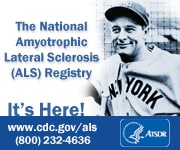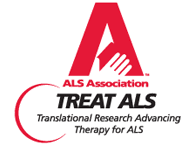According to the United States government, mine is not valued very highly.
In 2003, I began experiencing symptoms later diagnosed as amyotrophic lateral sclerosis, widely known as Lou Gehrig's disease. ALS is a progressive neuromuscular disorder that weakens and destroys motor neurons, causing paralysis and death. There is no cure or effective treatment. In the 150 years that we have known about ALS, science has unveiled few answers as to its cause or progression.
About 35,000 people in the U.S. live with ALS at any given time, including an alarming number of recent veterans. As ALS is relatively rare, I was disappointed but not surprised to find pharmaceutical companies uninterested in funding research, but was shocked how government supports ALS research compared with other conditions.
I found the National Institutes of Health spends billions of dollars for research -- the vast majority targeting preventable, treatable and non-life threatening diseases. The sample below provides perspective on how much money the NIH was willing to spend in 2008 to prevent each death from these diseases: HIV/AIDS, $198,263; substance abuse, $162,353; sexually transmitted diseases, $40,833; ALS, $7,167.
I shared my statistical analysis with U.S. Rep. Bill Foster (D-Ill.). He was impressed by the manner in which these statistics highlight inequities in NIH grant allocations and believes hard statistics help legislators make good decisions about how and where to direct federal funding.
Don't misunderstand me. The targets of NIH research dollars are deserving. However, I believe government's main role in health research should focus on basic research and on areas deemed unprofitable by private industry.
July 4 marks the 70th anniversary of Lou Gehrig's famous "Luckiest Man" speech, and many ALS awareness activities are planned to commemorate this occasion. Please help raise awareness of ALS by sharing this information with elected federal officials and the secretary of Health and Human Services.
source; SunTimes.com










1 comment:
Als is preventable as well. The method of prevention of als is a little more suble than that of prevention of aids. Still, it is preventable.
Post a Comment